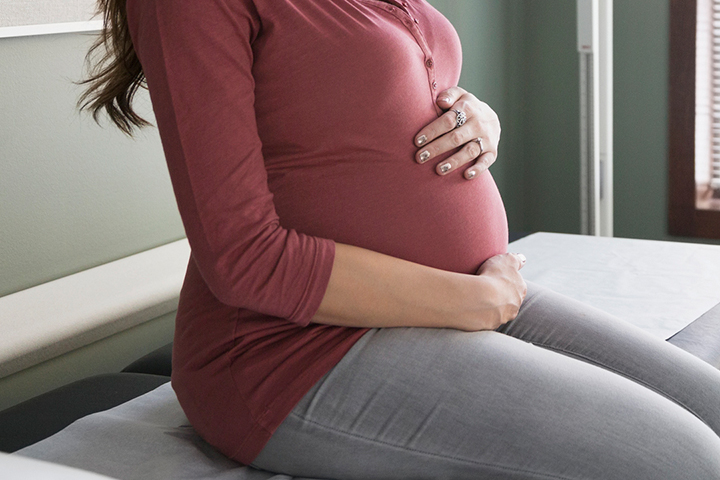When Jessica Allen delivered twins last year as a surrogate, she was unaware one of the babies was her own biological child.

In a personal column, the California mother recently wrote her story for the New York Post, claiming she was asked to pay US$18,000-$22,000 to get her biological son Malachi back in her custody.
Speaking with People magazine on Wednesday, Allen said her and her husband Wardell Jasper finally have full custody of their son.
READ MORE: Can you have an STI and a safe pregnancy?
Path to surrogacy
Last year, the 31-year-old mother-of-two agreed to be a surrogate for a Chinese couple through the agency Omega Family Global for US$35,000. When an ultrasound revealed she was carrying twins, Allen thought both of the babies belonged to the couple.

Get weekly health news
In December 2016 when she gave birth, she said both children were quickly taken away, but later that night, the biological mother sent a photo to her of the “twins.” Allen quickly noticed something was off.
“His skin tone was much fairer than the other. One looked full Chinese, the other didn’t look full Chinese,” she told People. “It was very clear that they were not identical … but I didn’t ask questions.”
Weeks later, the mother had reached out to Allen again via text messaging, and told her one of the babies continued to look “different.”
“She told me that she was having doubts that one belongs to her,” she continued.
READ MORE: Why women shouldn’t feel pressured to wait to announce their pregnancy
Allen and her husband eventually took a DNA test, and tests confirmed one of the babies was in fact Allen’s biological son. Although Allen was told by doctors not to have sex until she was confirmed to be pregnant (which she followed), it turns out she was ovulating early into the pregnancy.
“We had no idea how this came about and we had no idea how we were going to prepare for a child overnight. We just moved into a new house, we didn’t have any more money.”
Superfetation
Allen’s experience is called superfetation — getting pregnant while pregnant — and it is possible, just extremely rare.
Dr. Clifford Librach, medical director of the CReATe Fertility Centre in Toronto, says in his 25 years of experience as a fertility specialist, he has never seen anything like this.
“I’ve never seen it happen, but it can happen,” he tells Global News.
Superfetation occurs when a woman ovulates after getting pregnant, resulting in another pregnancy.
READ MORE: What you need to know about taking anxiety medication, anti-depressants during pregnancy
Librach says when he prepares a woman for surrogacy, there are generally two ways to do it. The first one, which is more common, is when doctors give the surrogate estrogen and she does not ovulate. Next, the fertilized egg is implanted and surrogates are told not to have sex during this time.
The second method is a completely different protocol, he adds, which requires the implanting to coincide with the surrogate’s natural ovulating cycle. The embryo is placed after the women ovulates on her own.
Surrogacy in Canada can add up, and typically, making an arrangement for a surrogate can cost between $60,000 and $80,000. This covers the cost of legal fees, surrogate expenses (meals, childcare, vitamins), the fertility treatment process and additional medication.
The BBC notes there have been 10 cases of superfetation recorded in the past. In 2016, an Australian woman got pregnant twice in 10 days, the site reports, while she was receiving hormones for polycystic ovary syndrome, a condition that prevented her from ovulating.
READ MORE: Mom’s hilarious take on having more than one child is pretty dead-on
In 2009, a 31-year-old Arkansas woman became pregnant twice, just weeks apart. Time reports the babies even had two different due dates.
According to Science Alert, superfetation is more common among animals, and has been seen in rodents, rabbits, horses, sheep and kangaroos.
















Comments